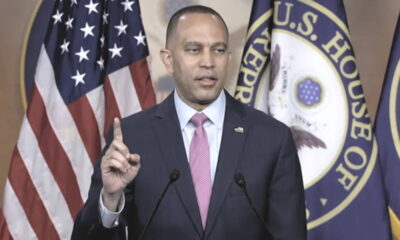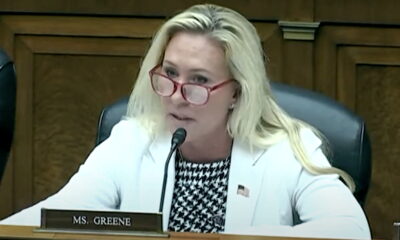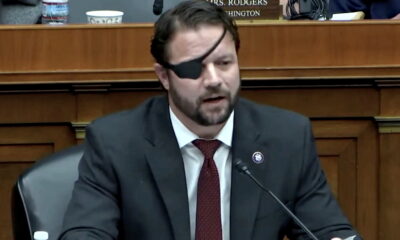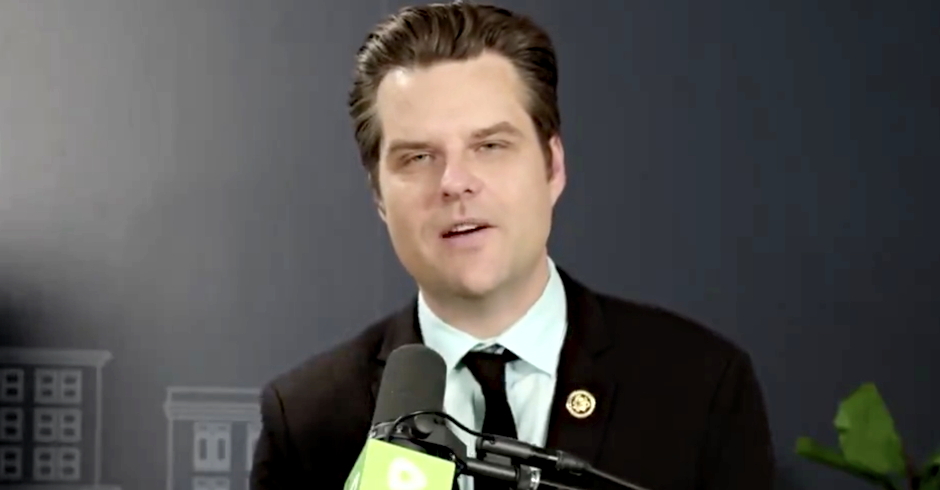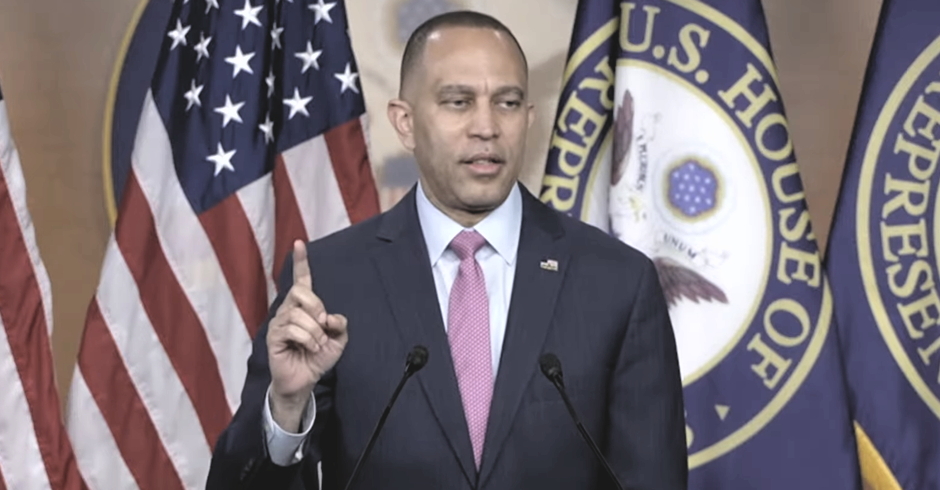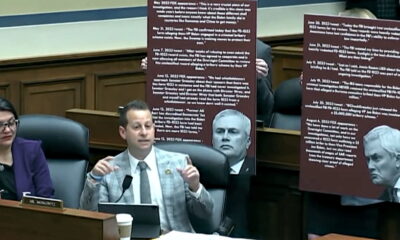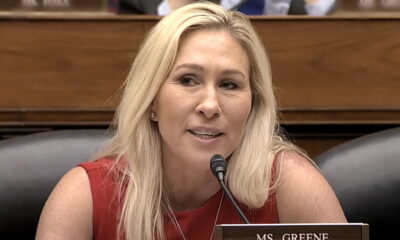News
18 Attorneys General Blast Florida’s “Don’t Say Gay” Law as Unconstitutional
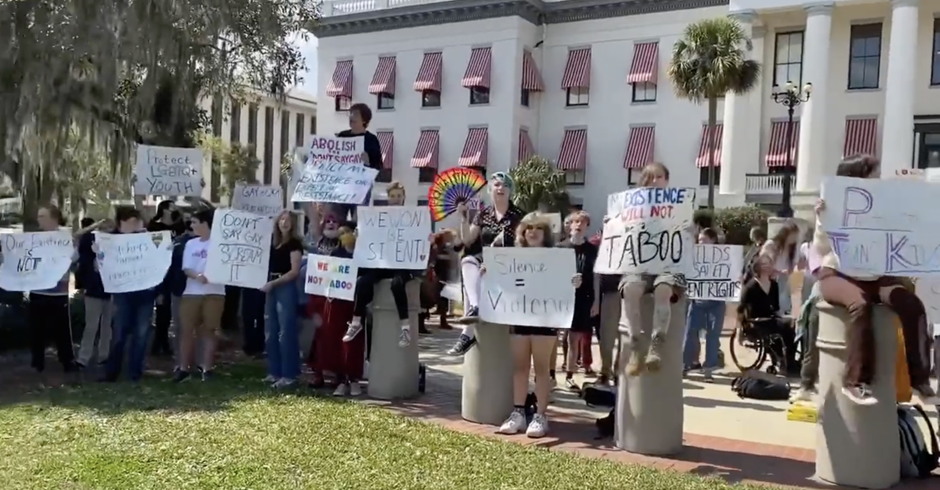
The attorneys general of Washington D.C. and 17 U.S. states have filed an amicus brief calling Florida’s “Don’t Say Gay” law unconstitutional.
The attorneys general of D.C. and New Jersey — Karl Racine and Matthew Platkin, respectively — filed the brief on December 22 in support of parents challenging the anti-LGBTQ+ law. The brief says the law impedes people’s freedom of speech, has worsened the mental health of Florida’s LGBTQ+ students, and has also increased the hostility and violence that LGBTQ+ people face nationwide.
“Florida’s law is unconstitutional,” Racine wrote in a December 23 press release. “Although Florida claims the Act is intended to protect children and preserve parental choice, the attorneys general have curricula in place that allow for age-appropriate discussion of LGBTQ+ issues while respecting parental views on the topic.”
Florida’s law prohibits K-3 teachers from talking about sexual orientation and gender identity issues with their students, under threat of parental lawsuits. State teachers have expressed confusion about whether the law requires them to hide their same-sex spouses or to speak out against anti-LGBTQ+ bullying. Bigots have also cited the law as proof that LGBTQ+ content “sexualizes” and “grooms” children of all ages for pedophilic rape, and that, hence, LGBTQ+ content should be banned from all libraries and classrooms.
“[Our] states also ordinarily leave educational decisions to schools and teachers, rather than allowing schools to be haled into court over even minor instructional choices,” the brief states. “Florida … stands alone in its censorship of instruction related to LGBTQ issues and in its imposition of legal liability on school districts that do not censor LGBTQ issues. All the while, there are ways to address Florida’s alleged concern in ensuring parental input in education without targeting a minority group.”
For example, the brief says, LGBTQ+ people are part of American history and society, and “in the preparation of students for citizenship,” it is “entirely rational” for schools to include their experiences in an age-appropriate manner. “The way to approach such issues is not to censor them but to equip educators to address them,” the brief adds, mentioning training programs that have prepared educators about the best ways to handle potentially explosive questions from students and teachers.
The brief also says, “The damaging effects of a law prohibiting instruction on LGBTQ issues in schools do not stop at a state’s borders. When a law anywhere sends the message that some members of the community are disfavored, as the Act does, it compounds the stigma associated with being part of that community everywhere.”
“Research shows that a failure to provide LGBTQ-inclusive classroom instruction adversely affects LGBTQ students’ mental health and learning outcomes and results in increased anti-LGBTQ bias,” the brief states.
States outside of Florida will be forced to spend more on health providers and LGBTQ+-inclusive organizations to heal the law’s negative mental health effects on their own citizens, the brief states. Similarly, schools outside of Florida must now invest more to ensure that anti-LGBTQ+ bullying and distress don’t increase among students who have heard of the law and its hateful political justifications.
“[Florida’s law] lacks a legitimate pedagogical purpose, rendering it constitutionally suspect,” the brief states, adding “that there is no legitimate reason to ban mentioning them.”
The brief was signed by Attorneys General from California, Colorado, Connecticut, Delaware, Hawaii, Illinois, Maine, Maryland, Massachusetts, Michigan, Minnesota, Nevada, New Jersey, New York, Oregon, Rhode Island, Washington state, and Washington DC.
Enjoy this piece?
… then let us make a small request. The New Civil Rights Movement depends on readers like you to meet our ongoing expenses and continue producing quality progressive journalism. Three Silicon Valley giants consume 70 percent of all online advertising dollars, so we need your help to continue doing what we do.
NCRM is independent. You won’t find mainstream media bias here. From unflinching coverage of religious extremism, to spotlighting efforts to roll back our rights, NCRM continues to speak truth to power. America needs independent voices like NCRM to be sure no one is forgotten.
Every reader contribution, whatever the amount, makes a tremendous difference. Help ensure NCRM remains independent long into the future. Support progressive journalism with a one-time contribution to NCRM, or click here to become a subscriber. Thank you. Click here to donate by check.
 |





